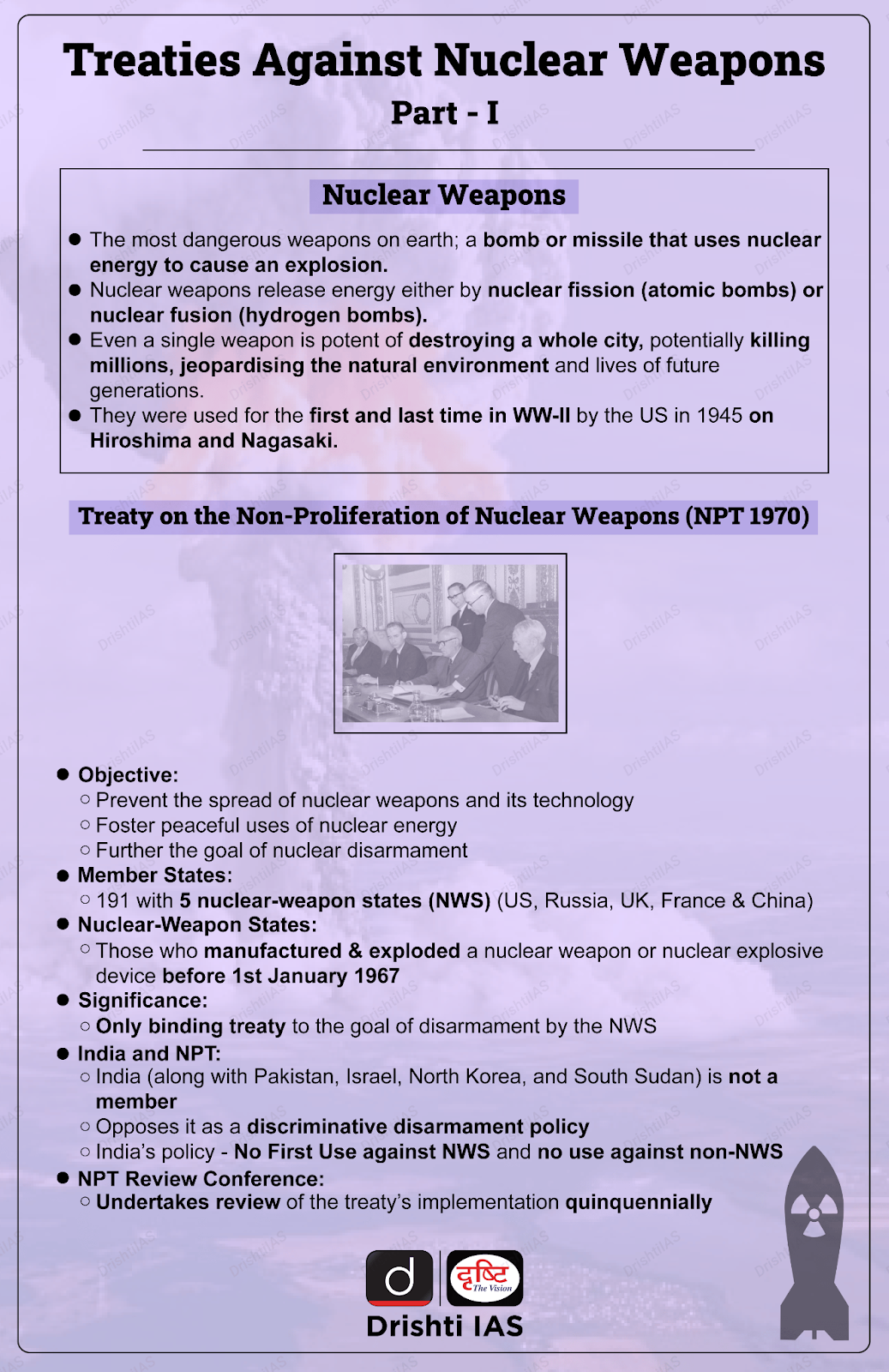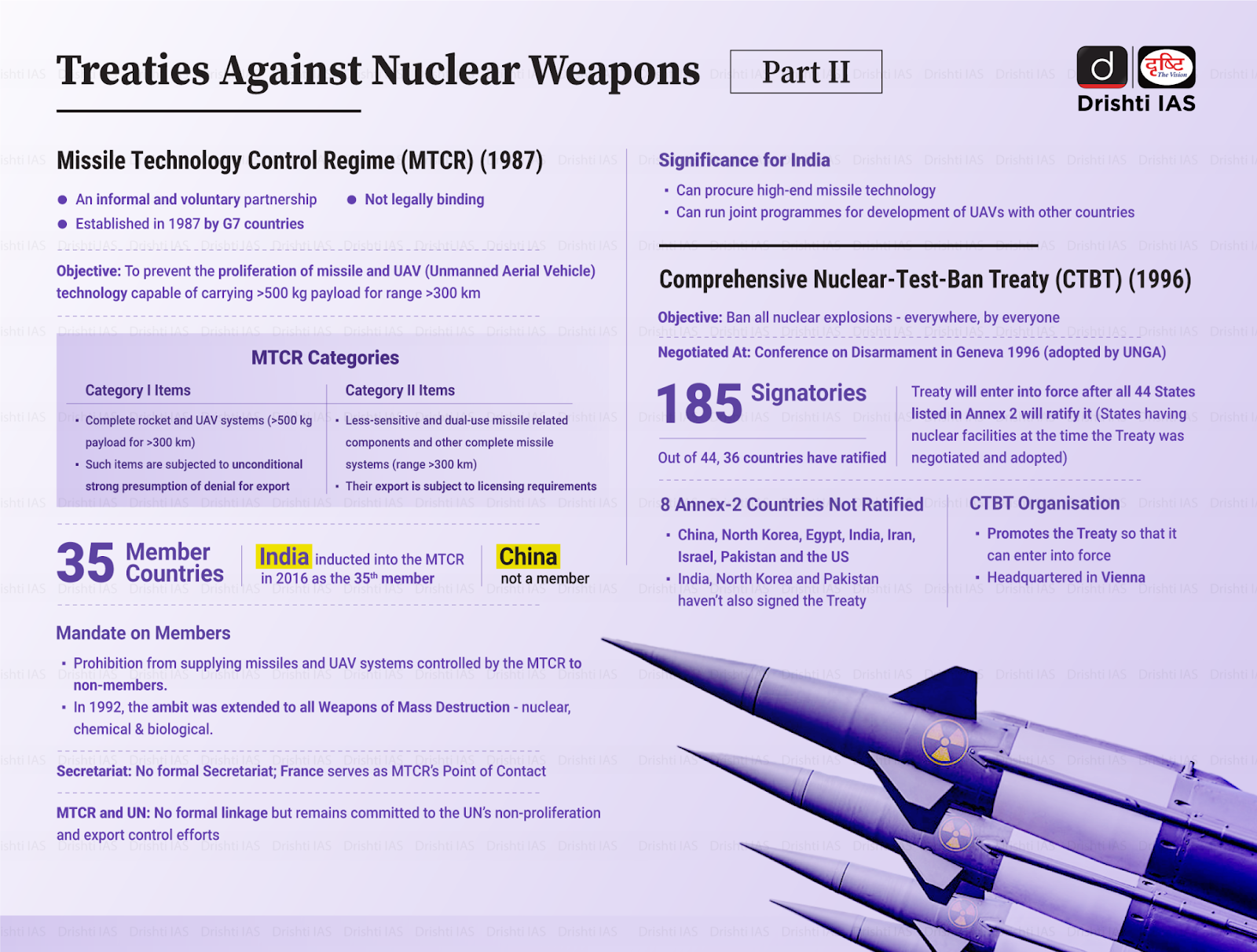Russia Withdraws from 1987 INF Treaty | 07 Aug 2025
Russia has formally withdrawn from the 1987 Intermediate-Range Nuclear Forces (INF) Treaty.
- About the INF Treaty (1987): Signed by the US and the Soviet Union, it banned all ground-launched ballistic and cruise missiles with a range of 500–5,500 km. It aimed to reduce nuclear threat and promote global arms control.
-
The US exited the INF Treaty in 2019, accusing Russia of violating it, which had already weakened the treaty’s relevance.
-
- Reason for Russia’s Exit: Russia claimed the treaty’s conditions no longer exist, and it cited US deployment of Typhon missile systems in the Philippines and missile drills in Australia (Talisman Sabre exercises) as a direct threat to its national security.
- Implications for Global Security: Raises fears of a renewed nuclear arms race and weakens global non-proliferation and arms control efforts.
-
Other Major Nuclear Arms Control Treaties:
- Treaty on the Non-Proliferation of Nuclear Weapons (NPT) (1970): Prevents nuclear proliferation, it acts as a key pillar of global disarmament. (India is not a member).
- Comprehensive Nuclear-Test-Ban Treaty (CTBT) (1996): Bans all nuclear weapon test explosions or any other nuclear explosions. The Treaty was negotiated in Geneva by the Conference on Disarmament. (India has not signed CTBT).
- New Strategic Arms Reduction Treaty (New START) (2010): Successor to the "Start Treaty", it places verifiable limits on deployed strategic nuclear warheads and launchers of both the US and Russia.
Read more: Nuclear Disarmament: India's Balancing Act


